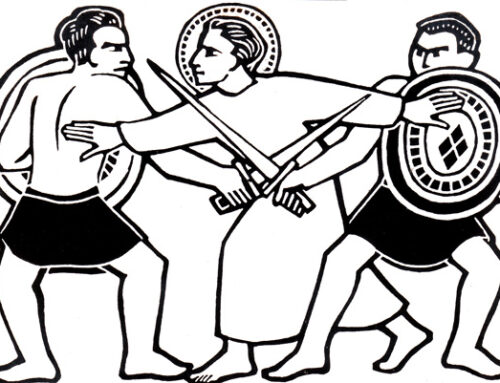The Ship is Going Down
November 22, 2016
Categories: Justice
This blog post is Part 5 in a 12-part blog series on Christianity and justice. (If you missed the first post, you can find it here.) Christians have different views about justice. Some Christians view justice as a core aspect of their life and mission. Other Christians have positive feelings toward justice, but it isn’t a big part of their identity and work. Still other Christians actively work against justice. Why do some Christians struggle to support justice? The next three posts will cover some of the main barriers Christians face when integrating justice into their faith.
The first barrier has to do with theology and eschatology. (Eschatology is just a fancy word that refers to how people think the world will end.) One prominent theory for how the world will end involves the world becoming worse and worse over time, culminating with an evil leader called the Antichrist. Near the end of the world, when things are at their worst, the rapture will occur, in which God will take all the Christians from the earth into heaven. At some point Jesus will come back to Earth and defeat the forces of Satan and restore a new heaven and new earth.
Can you see how a strong adherence to this worldview might hold people back from fully engaging in justice causes? If the world is getting worse and worse (and will continue to do so until Christ returns), working toward causes such as racial or economic justice is unlikely to ultimately be successful, and may be a waste of precious time and energy. These views are supported by certain Bible verses, such as when Jesus says, “The poor you will always have with you” (Mark 14:7). If the poor will always be with us (and in fact the situation is getting worse), what’s the point of trying to restructure society to achieve economic justice?
Along with this worldview, there is often a priority on evangelism and meeting spiritual needs, as opposed to working toward justice and meeting physical needs. People who hold this view may view issues such as slavery, oppression, and poverty as problematic, but they view people being spiritually lost as a much more urgent problem. The present world is viewed as temporary and fading away, compared to eternity, which will either be spent in heaven or hell.
To use a nautical analogy, if the ship is going down, it doesn’t matter so much what the sleeping arrangements are like on the boat, or if they are fair. The most important thing is to get as many people as possible into the lifeboats before the ship sinks. Justice may be viewed as a way to serve people, or help people come to know the love of Christ, but for some Christians, justice is a secondary concern. Also, a focus on justice may even be problematic if it directs people’s energy away from the primary concern of evangelism and meeting spiritual needs.
Discussion: What do you think of this theological and eschatological perspective? How much does this perspective influence your views on the importance of justice?
Related Thoughts
No Comments
Leave A Comment

Subscribe To My Newsletter
Join my mailing list to receive the latest blog posts.
Receive my e-book “The Mental Health Toolkit” for free when you subscribe.






[…] barriers that hold Christians back from getting involved in supporting justice causes—including having an eschatological view that prioritizes heaven vs. the here and now, and disagreeing with certain causes from a Biblical […]
[…] Click here to read Part 5: The Ship is Going Down […]